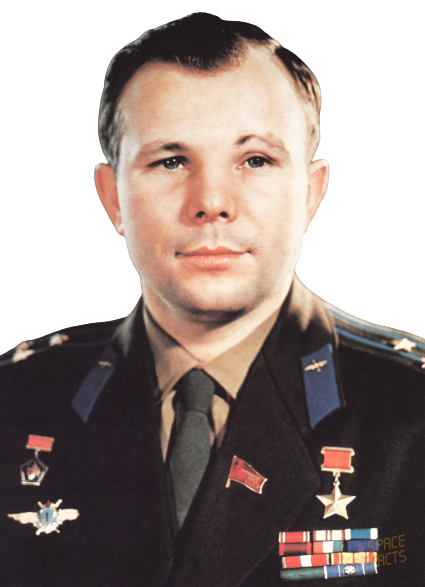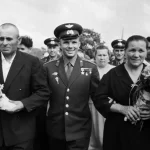
20.12.2022
As for fundamental discoveries, they for manned cosmonautics lie not in the field of astronomy or physics, but in the field of human biology, entering a fundamentally new habitat.
And the first who made one of the most important discoveries in this field, which had theoretical and practical importance, was, as it is easy to guess, Yuri Alekseyevich Gagarin.
It may seem strange that Gagarin’s most significant scientific discovery is almost never mentioned in any of his many biographies, even in Soviet biographies. Probably, it was believed that the glory of the feat he performed was enough. In addition, there was a rule that the fact of discovery is recorded in the researcher upon publication of a corresponding article in a peer-reviewed journal, while the cosmonaut was not mentioned anywhere in the articles on medical and biological subjects, which appeared after the flight, even as a co-author. In special cases, the priority can be determined by a public speech to representatives of the scientific community, which is often resorted to in the XIX and early XX century, but the oral report of Gagarin before members of the State Commission, held on April 13, 1961, as we remember, was published only in April 1991, that is, thirty years later. Hence the belief that the cosmonaut was not one of the participants in the experiment, but only an object of research, which could in no way influence its conduct and purity.
The next stage of generalizations concludes that, in fact, there were no special scientific discoveries in the first manned flight as compared to previous ones in which test dogs were used. It is impossible, in fact, to call the technical improvements made in the equipment of the “Vostok” spacecraft as such, isn’t it? And here it is already imperceptibly put an equal sign between the first astronaut and test dogs. Records? What about records? They were soon broken by German Titov. That is, step by step, there is a consistent devaluation of both the achievements of Yuri Gagarin and manned cosmonautics as a whole, which from the sphere of scientific and technological activity, under the will of commentators, becomes a sporting competition of states – important, but not very necessary.
The problem, it seems to me, lies in our peculiar perception of the history of science. Every next generation takes previous discoveries or technical achievements as a given, often without even realizing that a couple of decades ago the picture of the world for older contemporaries was quite different. For example, in the first half of the XX century a lot of effort was spent to explain the meaning of the special and general theories of relativity, formulated by Albert Einstein, because they were quite contrary to classical physics and everyday experience, and in the second half of the century they began to be taught in schools, and by the end of the century the relativity effects became something self-evident, not requiring additional references to scientific or popular scientific works. At the same time, of course, we remember Einstein’s name, but hardly anyone can answer, in what context and in connection with what his theories appeared, why they were needed, what problems they solved, what questions they closed, why some physicists accepted them immediately and enthusiastically, while others refused to accept them until the end of life. There is a kind of aberration of distance, when it seems to us that the knowledge we have always had, that the subjective picture of the world has not changed, so it is easy to take the error of our ancestors, kicking dead lions and stomping on the shoulders of giants. And for some reason it is more difficult to admire the way our ancestors overcame their own ignorance, knowing the world beyond the boundaries of everyday life, making mistakes and stumbling, wandering along crooked side paths, but still persevering toward the truth.
All of the above also applies to Yuri Gagarin.




